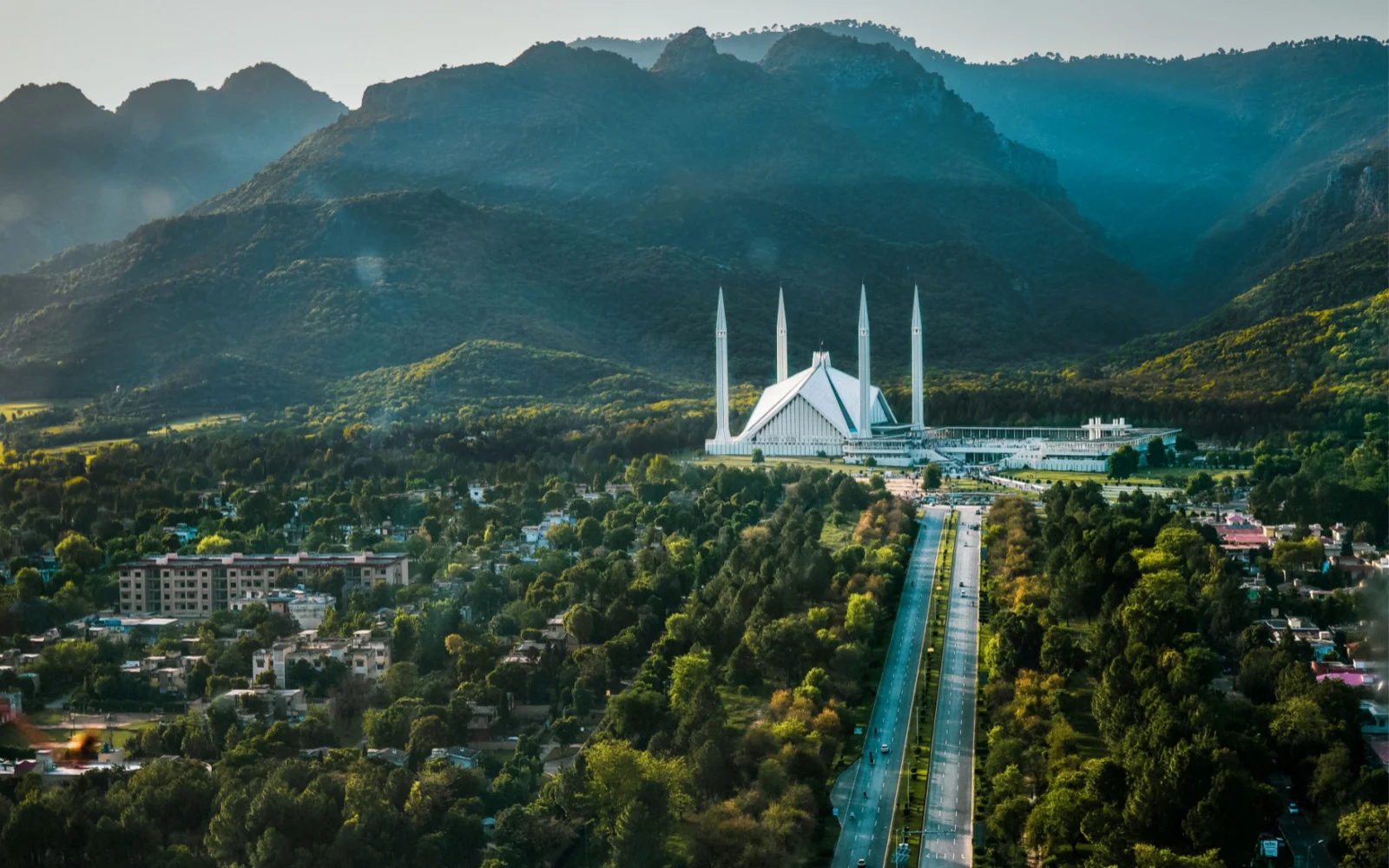Pakistan is a beautiful country but is still off the radar for many tourists. According to World Bank data, Pakistan receives less than 1 million foreign visitors each year, which is a low number for a country of over 231 million people.
The visitors who do visit Pakistan have a lot to see. They can explore beautiful nature, including the world’s second-highest mountain, K2. Pakistan also has many important historical and cultural sites, like the royal city of Lahore or the medieval Derawar Fort.
Tourists who venture to Pakistan are often rewarded with unique experiences, but you might be wondering why so few people, relatively speaking, visit the country. Do we think Pakistan is safe to visit? Find out below.
Is Pakistan Safe to Visit?
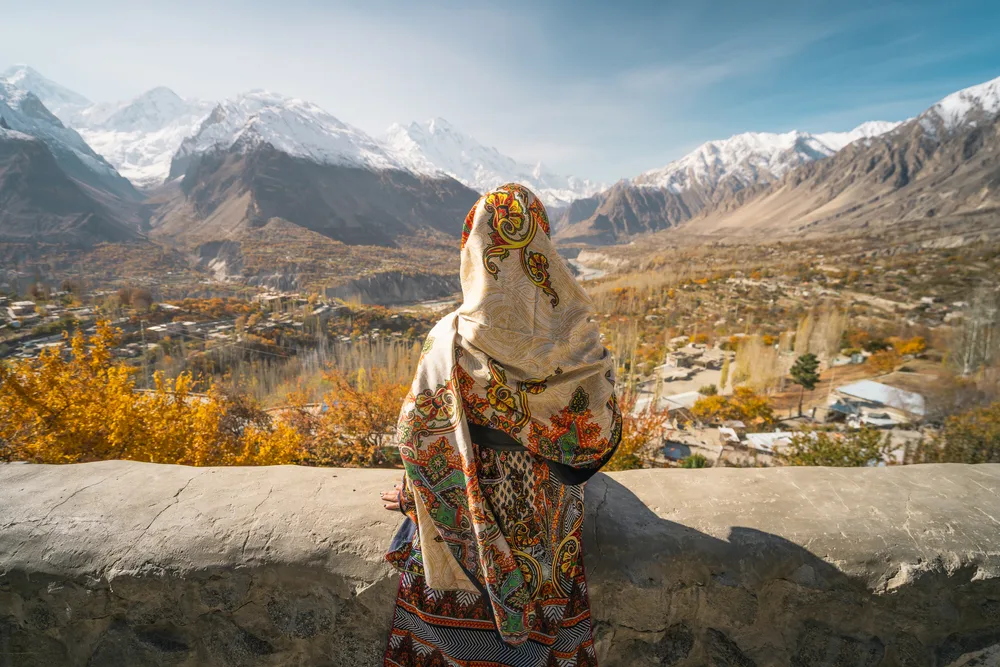
Punnawit Suwattananun/Shutterstock
No, Pakistan is not safe to visit. In fact, most countries advise against non-essential travel to Pakistan due to the shaky security situation.
Foreign governments frequently cite the risk of terrorism as well as other crimes to warn tourists against traveling to Pakistan. However, travel to Pakistan is possible for very intrepid travelers.
Most countries advise their citizens to reconsider all but essential travel to Pakistan and to avoid certain regions altogether. For example, the United States State Department has Pakistan under a “Level 3: Do Not Travel” advisory for its citizens and warns travelers against visiting certain regions.
The main concern for most foreign governments and travelers to Pakistan is terrorism. Pakistan’s terrorism crisis goes back many years. According to foreign policy analysts, the government is partially to blame as it often tacitly supported certain terrorist groups in an attempt to shore up its status.
Some analysts blame Pakistan for supplying the Taliban, which reconquered Afghanistan, arguing that it should be placed on the state sponsors of terrorism list that the U.S. State Department maintains.
Pakistan’s bad relationships with its neighbors go a long way toward explaining the unsafe security situation in the country. Pakistan borders Afghanistan, which is currently back under Taliban control, and the terrorist groups often bleed across the border.
It also shares a border with India, with which it has a long-standing dispute going back to the independence of both countries. The most striking example of this rivalry is the daily show at the Wagah border crossing, but the relationship between the two countries is far more violent.
The countries are still in dispute over their borders that were drawn up in the 1940s, especially Kashmir, and have fought three outright wars. Adding to the dangerous atmosphere is the fact that both states are nuclear powers.
Finally, Pakistan often faces regular societal tensions and civil unrest. In early 2023, protests erupted against attempts by the government to arrest former prime minister Imran Khan.
There is no word yet on when the political situation will be resolved. There are protests in major Pakistani cities, often violently suppressed by the authorities.
Civil unrest and Pakistan’s shaky political situation won’t often affect foreigners, although terrorist attacks can affect foreigners as well as locals. Crime, on the other hand, is a problem that locals and foreigners alike will face.
Common crimes in Pakistan include:
- Kidnapping
- Pickpocketing
- Purse snatching
- Fraud, including credit card fraud
- Gender-based violence, including sexual assault
Finally, it’s important to be aware of natural disasters that can hit Pakistan. Common natural disasters include cyclones, earthquakes, and flooding.
In 2022, Pakistan experienced devastating floods that displaced millions of people and whose effects are still felt today. Avoid traveling to Pakistan during cyclone season, and pay special attention to the weather reports and any evacuation notices before your trip.
Crime in Pakistan
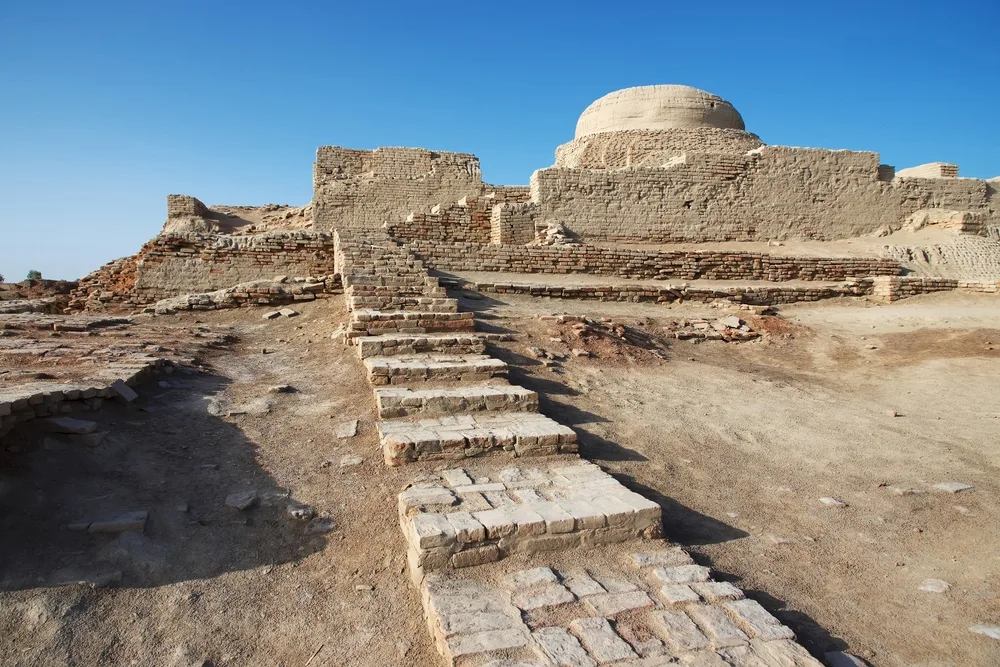
Sergey-73/Shutterstock
Although terrorism gets the most attention in Pakistan’s travel advisories, the country also has other dangers. Crime, mostly petty crime, is prevalent, especially against tourists.
Many foreign governments, including the UK government, warn people that rates of street crime in Pakistan are very high. This includes crimes such as fraud, pickpocketing, and bag snatching.
Criminals can operate everywhere, but they tend to target crowded areas that also attract lots of foreigners, such as street markets and festivals. Street crime is prevalent and the most common problem that foreigners encounter, but far from the most dangerous.
Violent crimes such as homicide, sexual assault, and kidnapping are common, especially in more remote areas. The problem is that it is hard to get accurate crime statistics for Pakistan.
According to World Bank data, the homicide rate in Pakistan is 3.84 incidents per 100,000 people. However, the actual rate is probably much higher because the government doesn’t have full control over its territory.
It is impossible to get accurate crime statistics in areas such as Baluchistan, which is an issue for accuracy since these are the areas that have high rates of terrorism, banditry, and other forms of crime. Gender-based violence is also unfortunately common in Pakistan.
There are many cases of honor killings, forced marriages, and sexual assaults. According to one survey, 70–90% of married Pakistani women experienced violence at the hands of their husbands.
The worst of gender-based violence primarily affects local Pakistani women who have no legal or societal recourse to avoid strict gender roles that mandate they accept violent treatment. However, female travelers also report feeling uncomfortable in Pakistan. Catcalling on the streets is very common.
Groping and sexual harassment will also happen in crowds, affecting both male and female travelers. You can try staying alert to avoid situations such as these, but unfortunately, it will be hard to avoid completely in Pakistan.
Petty Theft
Although terrorism may grab all the headlines, the primary reason why tourists come home from Pakistan with less than glowing memories is petty theft. Petty theft is prevalent throughout the country, especially in major tourist destinations and busy cities such as Lahore.
Karachi is the most notorious city for theft in Pakistan, but no area is really immune. As a foreign traveler, you will already stick out as a potential target, so try to limit your visibility to criminals.
Don’t walk around flashing expensive cameras, smartphones, or jewelry, as that marks you out as a lucrative target to thieves. Try to leave your valuables at home or in your (secure) accommodations.
The New Zealand government warns that thieves often target passports as the illegal passport trade is a lucrative business in Pakistan, so keep a color copy of your documents on you, back home with a trusted friend or relative, and online.
Scams and fraud are also common throughout Pakistan. Some scammers will pose as police officers to try to get foreigners to pay a fine when they are actually not allowed to do so. Always ask for an ID if someone stops you.
Credit card fraud is also widespread. Pay by cash when possible, and make sure your credit card is never out of your sight. Only use ATMs that are located inside banks or other buildings.
Although petty theft is the most common crime that foreigners face in Pakistan, more violent forms of theft are increasingly common, especially in bigger cities such as Karachi. Vehicle break-ins and carjackings are common forms of theft targeting foreigners.
Always keep your valuables secure even when you’re in the car, and make sure that all doors and windows are locked.
Avoid traveling at night, as that is when most criminals prowl the streets. Make sure that you travel with a secure driver, as criminals often pose as taxi drivers, especially at the airport.
Terrorism
The crime most people worry about when traveling to Pakistan is terrorism — and with good reason. The country has many terrorist groups that are fairly active in terms of their activity.
They often target foreigners in their attacks. The UK government features an extensive explanation of the terrorist situation in Pakistan in its travel advice for citizens.
Groups that are often behind terrorist attacks in Pakistan are Tehrik-e Taliban Pakistan (TTP), the Pakistan branch of the Taliban, Daesh, and some smaller local groups. Terrorist groups frequently organize bombings as well as kidnappings.
Kidnappings often target Westerners or affluent locals that they can hold to prove a point or trade for a lucrative ransom. Although Pakistan has come a long way from the worst of its terrorism rates in the early 2000s and 2010s, the situation looks as if it might take a turn for the worse.
The Australian government reports that local authorities warned foreign embassies that the risk of terrorism, especially against foreign interests, was escalating toward the end of 2022.
While most terrorist groups target Pakistani government buildings and other places where tourists rarely venture, they might sometimes target institutions that foreigners frequent, such as festivals, hotels, and restaurants that cater to ex-pats.
You can limit your risk of terrorism by being careful where you go and avoiding places that have frequent terrorist attacks. Terrorists often target festivals and places of worship of minority groups in Pakistan, such as the Shia, Sufi, and Ismaili Muslim sects.
So be careful if you want to check out any local festivals. Crowds in Pakistan are often dangerous, both because of terrorism and due to crowd stampedes, so try to get to safety when you notice too many people congregating around you.
Avoiding Bad Areas
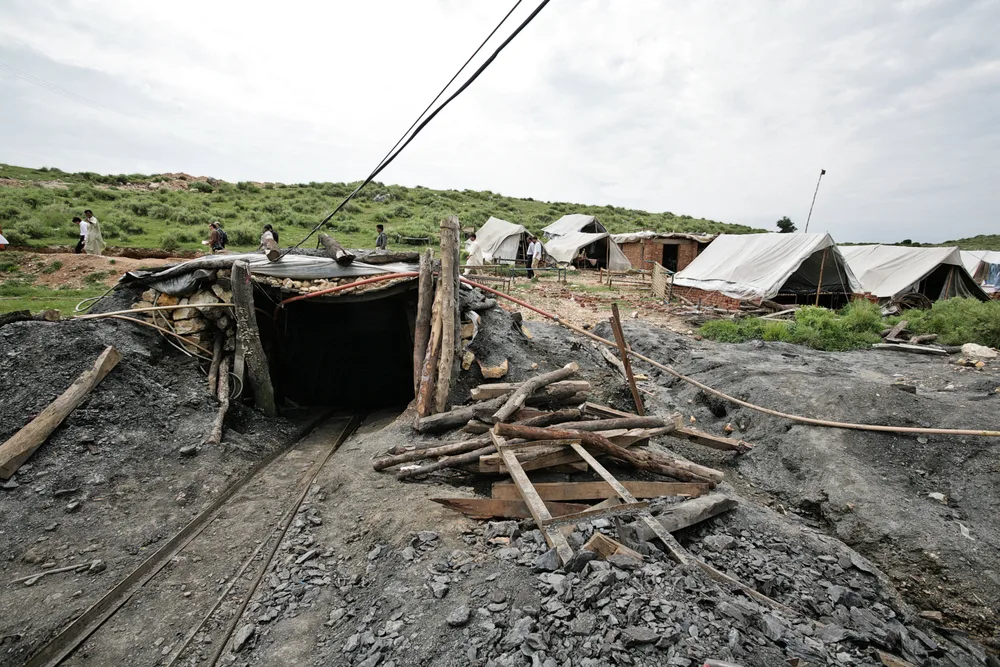
Kohistan, Pakistan, 2007: the exit tunnel of the carts with the ore/Daniele Gussago Photo/Shutterstock
Certain parts of Pakistan are far more dangerous than others, and avoiding them will go a long way toward making your trip safe. First, avoid the areas near all of Pakistan’s land borders, especially the ones with India and Afghanistan.
Avoid Baluchistan, a region with a strong separatist movement and terrorist groups. Avoid Khyber-Pakhtunkhwa, which now includes the Federally Administered Tribal Areas, another region with a high rate of lawlessness, especially the kidnapping of foreigners.
Avoid Kashmir, which is disputed with India, as you never know when tensions might erupt between the two countries. Luckily, it is unlikely that you will accidentally wander into an unsafe area.
Pakistan strictly controls who can enter dangerous regions, and foreigners need a Non-Objection Certificate to enter these places, which is practically impossible to obtain. Checkpoints are frequent, and you will be told if you can’t pass a certain point.
Things to Consider
Here are a few things to keep in mind before you head to Pakistan:
- Military checkpoints in Pakistan are common, so make sure that you have your ID on you and are prepared to get stopped.
- Crowds in Pakistan are dangerous due to unpredictable crowd behavior, so try to stick to the sides and have a clear escape route in case things get out of hand.
- Pakistan’s drivers are notoriously aggressive, and the roads are notoriously poorly maintained, so be careful when crossing the street. Unless you are a very experienced driver, don’t rent your own motorcycle or car.
- Hygiene standards are not the greatest in Pakistan, so bring medication with you and be careful what you eat or drink.
Frequently Asked Questions
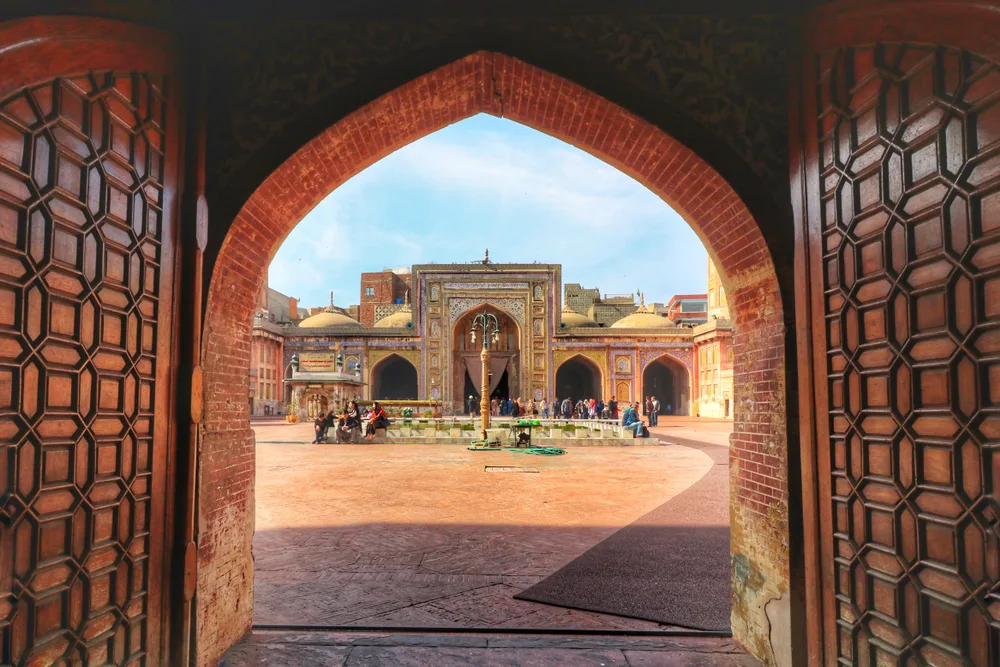
A_noina/Shutterstock
Here are some other questions that previous travelers to Pakistan wanted to know:
Are tourists safe in Pakistan?
Tourists are never fully safe in Pakistan due to the constant risk of terrorism as well as civil unrest and conflict. Experienced travelers have had a good time in Pakistan, but you need a tolerance for uncertainty to do well there.
Is Pakistan safe for female travelers?
Pakistan has a high rate of gender-based violence. Even though that mostly affects local women, foreign women are also victims of street harassment and even assault. Although it is possible for women to travel to Pakistan, only experienced travelers should attempt it.
What not to do when visiting Pakistan?
When visiting Pakistan, don’t visit an area without doing research, and don’t make yourself stand out by flashing your valuables. Be very careful when discussing politics or religion, as Pakistan is a conservative place, and you don’t want to offend someone accidentally.
Does Pakistan welcome tourists?
Pakistan wants to develop its tourism industry, and it has been investing in better security and infrastructure for visitors. Visitors will even get designated safety guides to semi-dangerous areas.
Which is safer, India or Pakistan?
India is mostly safer than Pakistan because it has a lower rate of terrorism. However, in terms of crime, both countries are challenging to visit.
So, Is Pakistan Safe to Visit?
The Pakistani government has taken steps to make Pakistan safer for visitors, including upping security and limiting entrance to dangerous areas. However, it has a high rate of terrorism and petty crime, so you should know what you’re getting into before you go.
The good news, however, is that there are countless other safe places to visit, so be sure to check out some of our other guides to see what other locations are ripe for adventure. Happy travels!



